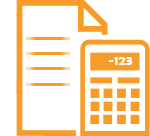Pay guidance

PayslipsEmployees are entitled to a payslip each time they are paid. The payslip should say what they have been paid, what deductions have been made (e.g. tax, National Insurance and trade union subscriptions) and take-home pay. Each year employers must give employees a P60 certificate which shows their gross pay for the year, take-home pay and the total deductions made from their pay during the year. |
|
|
|
|
Sick payYour level of sick pay will depend on workplace policies, this may be different if you are off sick because of the coronavirus. See the government guidance here: https://www.gov.uk/statutory-sick-pay If your employer does not pay enhanced sick pay, you may be entitled to which is a flat-rate state benefit. It is payable by your employer from the forth day of sickness up to 28 weeks. You are entitled to SSP as long as you have paid enough National Insurance contributions. You may be able to claim Income Support or Employment and Support Allowance. Find out more |














 National minimum wage
National minimum wage

